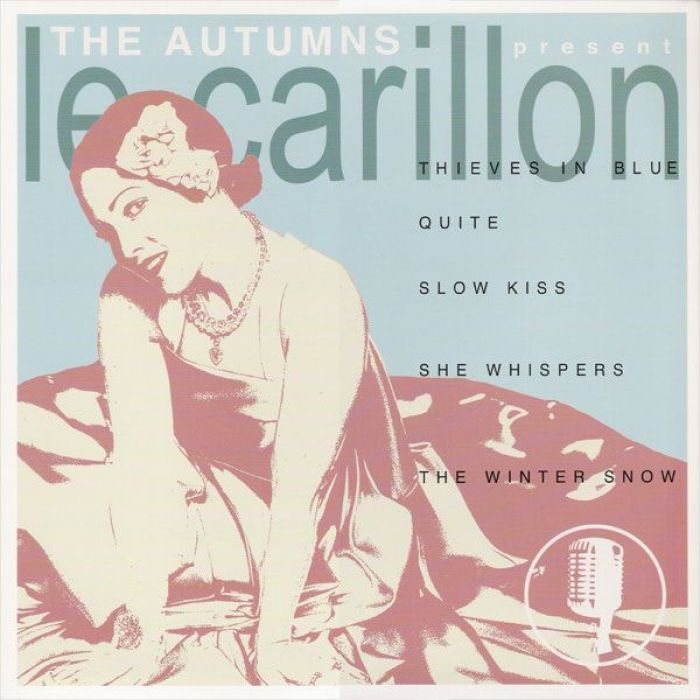Le Carillon by The Autumns (Review)

The dreamy pop song… it’s really a lost art, isn’t it? Oh sure, there are plenty of winsome and woefully poetic indie popsters out there writing ballads for the brokenhearted, with heavy lyrics and a bevy of guitar effects. But too often, those come off as the kind of romantic whining you wouldn’t allow your best friends to get away with. There are a handful of artists, however, whose attempts at writing sad, wistful pop songs should not only be encouraged, but cherished. And with Le Carillon, The Autumns shoot right to the top of that list.
On one level, Le Carillon is ripe with self-parody. After all, should a band be able to get away with lyrics like “Her silver fingers of December/Sting the skinless waters/To ebb the sound of laughter another day” (“Thieves In Blue”) or “Thrice blinks the bride and mothers mew/These nectar rivers stir to pollenate your eyes” (“Quite”)? I highly doubt that anyone, even The Autumns, can tell me what the heck those lyrics mean. But they sure sound pretty, especially when delivered in Matthew Kelly’s effortless falsetto. And that’s the entire point.
These songs are pure filigree, the musical equivalent of rococo art, completely concerned with ornamentation and flourish. And the ornamentation here takes the form of Kelly’s breathless croon, the surf-tinged guitars that more often than not fade away into washes of echo and reverb, the lightly brushed percussion, and those too-pretty lyrics. If you’re looking for gritty, honest ruminations on affairs of the heart, look elsewhere. The closest Le Carillon comes to anything remotely dark and disturbing is on “Slow Kiss,” when Kelly moans “Oh I’m so ready to die today” with Morrissey-like pathos.
Considering the doe-eyed sentimentality that fills Le Carillon to the brim, it’s probably a good thing it only last 12 minutes. Any longer and it would be too much to stomach. As much as I’m tempted to say that I could listen to this stuff forever, I know better. I could only take so much before it loses its charm. But as it stands, Le Carillon is short and sweet. Unless you’re completely full of guile and cynicism, you’ll find it nearly impossible to not fall completely under its spell.